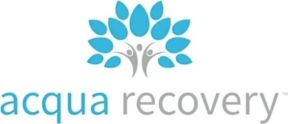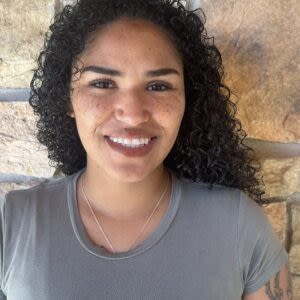








Acqua Recovery
Verified Center
This provider's information has been quality-checked by Recovery.com's Research Team for accuracy and completeness, including center verification through appropriate third-party organizations.
Treatment Focus
This center treats substance use disorders and co-occurring mental health conditions. Your treatment plan addresses each condition at once with personalized, compassionate care for comprehensive healing.
Primary Level of Care
Offering intensive care with 24/7 monitoring, residential treatment is typically 30 days and can cover multiple levels of care. Length can range from 14 to 90 days typically.
Treatment Focus
This center treats substance use disorders and co-occurring mental health conditions. Your treatment plan addresses each condition at once with personalized, compassionate care for comprehensive healing.
Primary Level of Care
Offering intensive care with 24/7 monitoring, residential treatment is typically 30 days and can cover multiple levels of care. Length can range from 14 to 90 days typically.
Provider's Policy
Acqua Recovery is proud to be a premier in-network provider of care and we also accept out-of-network options, including Aetna and United. We do not currently accept Medicaid or Medicare. Please click the link for your free insurance verification.
Acqua Recovery
Acqua Recovery
About Acqua Recovery
Acqua Recovery treats addiction and co-occurring mental health conditions with evidence-based and holistic therapies, tailored treatment plans, and nutritional care. Their medical model of addiction aims to identify each client’s addiction and deeply understand contributing pathophysiological issues. Acqua Recovery provides multiple levels of personalized care, including residential treatment, day treatment (or partial hospitalization), intensive outpatient, aftercare, and separate sober living homes for men and women.
A Comprehensive Range of Therapies for Addiction Recovery
Acqua Recovery addresses co-occurring mental health conditions, including depression, anxiety, trauma, and more. A specific dual-diagnosis assessment determines if clients have a co-occurring disorder and how it connects to their addiction. Evaluations and assessments also help staff craft a unique treatment plan suited to their needs. Clients are supported by experienced staff members including clinical mental health counselors, clinical social workers, substance use counselors, and recovery coaches. Acqua Recovery uses various evidence-based and holistic therapies to treat addiction and underlying mental health conditions. These include cognitive behavioral therapy (CBT), dialectical behavioral therapy (DBT), equine therapy, eye movement desensitization and reprocessing (EMDR), internal family systems therapy (IFS), and more. Holistic options include yoga, music and art therapy, and meditation.
Multiple Levels of Care for Addiction and Co-Occurring Mental Health
Acqua Recovery offers residential and outpatient treatment, as well as sober living homes. In day treatment, clients come to treatment 5 days weekly, from 8:15am–5pm. Clients receive continued individual and group therapy, with one 1:1 session weekly. In intensive outpatient, clients attend 10 hours of weekly treatment from 1–4pm on Mondays, Wednesdays, and Thursdays. Continued psychoeducation, process groups, and peer support help clients hone their recovery skills. With live-in House Managers, their sober living homes offer a safe and structured environment to thrive and attend recovery groups.
A Recovery Oasis in The Rockies
Acqua Recovery’s sprawling campus is set on 12 acres in the Rocky Mountains. They have a spring lake with fishing opportunities, horses/equine therapy, outdoor adventure activities, and incredible natural views. An on-site organic garden fuels chef-prepared meals. Clients have shared bedrooms with the option of a private room. Acqua Recovery allows clients to bring service animals on-site. After treatment, clients can join Acqua Recovery’s robust alumni program which includes weekly meetings, fun peer activities, and a private online community. Their aftercare services provide continued recovery coaching and recovery meetings.

Highlights from the Center
Highlights
These highlights are provided by and paid for by the center.
Holistic Approach
Trauma-Informed Care
Master's Level Therapists
Center Overview
Treatment Focus
This center treats substance use disorders and co-occurring mental health conditions. Your treatment plan addresses each condition at once with personalized, compassionate care for comprehensive healing.
Joint Commission Accredited
The Joint Commission accreditation is a voluntary, objective process that evaluates and accredits healthcare organizations (like treatment centers) based on performance standards designed to improve quality and safety for patients. To be accredited means the treatment center has been found to meet the Commission's standards for quality and safety in patient care.

Acqua Recovery
Insurance Accepted
Cash Pay Rates
Estimated Cash Pay Rate
Center pricing can vary based on program and length of stay. Contact the center for more information. Recovery.com strives for price transparency so you can make an informed decision.




Recovery.com Verified Listing
Recovery.com verified that the name, location, contact information and license to operate for this treatment provider are valid and up-to-date.

Joint Commission Accredited

Licensed by Utah Secretary of State
Recovery.com is an independent, third-party mental health resource. Verification does not imply endorsement and does not guarantee the quality of treatment services.
Meet Your Care Team

Dr. Daniel Pickrell
Medical Director
MD

Lora Mecham
Medical Liason

Gloria Anderson
Clinical Director
CMHC

Janelle Jones
Masters-Level Clinician
ACMHC

Kathy Felt
Masters-Level Clinician
CSW

David Jay
Substance Abuse Counsellor
SUDC

Jasmine Sargent
Recovery Coach Supervisor

Joede Dudly
Alumni Coordinator / Case Manager

Shambray Valdez
Lead Trainer / Recovery Coach

Shea Sheeran
Recreation Coordinator

Kyria Cropper
Head Chef

Matt Biekert
Director of Admissions

Ashlee Christensen
Outreach Specialist

Travis Sturdevant
Marketing Manager

Madison Kawai
Alumni Coordinator
Your Care Options
Specializations
Alcohol
Using alcohol as a coping mechanism, or drinking excessively throughout the week, signals an alcohol use disorder.
Benzodiazepines
Benzodiazepines are prescribed to treat anxiety and sleep issues. They are highly habit forming, and their abuse can cause mood changes and poor judgement.
Co-Occurring Disorders
A person with multiple mental health diagnoses, such as addiction and depression, has co-occurring disorders also called dual diagnosis.
Drug Addiction
Drug addiction is the excessive and repetitive use of substances, despite harmful consequences to a person's life, health, and relationships.
Methamphetamine
Methamphetamine, or meth, increases energy, agitation, and paranoia. Long-term use can result in severe physical and mental health issues.
Opioids
Opioids produce pain-relief and euphoria, which can lead to addiction. This class of drugs includes prescribed medication and the illegal drug heroin.
Prescription Drugs
It's possible to abuse any drug, even prescribed ones. If you crave a medication, or regularly take it more than directed, you may have an addiction.
Trauma
Some traumatic events are so disturbing that they cause long-term mental health problems. Those ongoing issues can also be referred to as "trauma."
Who We Treat
Executives
Executive treatment programs typically directly support the needs of people who manage businesses and may provide flexible schedules and office space to allow work during treatment.
Men and Women
Men and women attend treatment for addiction in a co-ed setting, going to therapy groups together to share experiences, struggles, and successes.
Midlife Adults
For adults ages 40+, treatment shifts to focus on the unique challenges, blocks, and risk factors of their age group, and unites peers in a similar community.
Professionals
Busy, high-ranking professionals get the personalized treatment they need with greater accommodations for work, privacy, and outside communication.
Veterans
Patients who completed active military duty receive specialized treatment focused on trauma, grief, loss, and finding a new work-life balance.
Treatment Services
Day Treatment
In a PHP, patients live at home but follow an intensive schedule of treatment. Most programs require you to be on-site for about 40 hours per week.
Intensive Outpatient Program
In an IOP, patients live at home or a sober living, but attend treatment typically 9-15 hours a week. Most programs include talk therapy, support groups, and other methods.
Outpatient
During outpatient rehab, patients attend a structured treatment program while continuing to live at home.
Residential
In a residential rehab program, patients live onsite, with access to daily treatment and 24-hour care. An average stay is 30-90 days.
Approaches
Evidence-Based
A combination of scientifically rooted therapies and treatments make up evidence-based care, defined by their measured and proven results.
Holistic
A non-medicinal, wellness-focused approach that aims to align the mind, body, and spirit for deep and lasting healing.
Personalized Treatment
The specific needs, histories, and conditions of individual patients receive personalized, highly relevant care throughout their recovery journey.
Twelve Step
Incorporating spirituality, community, and responsibility, 12-Step philosophies prioritize the guidance of a Higher Power and a continuation of 12-Step practices.
Therapies
1-on-1 Counseling
Patient and therapist meet 1-on-1 to work through difficult emotions and behavioral challenges in a personal, private setting.
Meditation & Mindfulness
A practiced state of mind that brings patients to the present. It allows them to become fully aware of themselves, their feelings, and the present moment.
Trauma-Specific Therapy
This form of talk therapy addresses any childhood trauma at the root of a patient's current diagnosis.
Rational Emotive Behavior Therapy
A type of cognitive therapy that identifies negative self-defeating thoughts and behaviors, rewriting beliefs to be positive, empowering, and present.
Mindfulness Therapy
This ancient practice can be mental, emotional, and even spiritual. In meditation, you focus your attention on the present moment without judgement.
Art Therapy
Visual art invites patients to examine the emotions within their work, focusing on the process of creativity and its gentle therapeutic power.
Conditions We Treat
Grief and Loss
Grief is a natural reaction to loss, but severe grief can interfere with your ability to function. You can get treatment for this condition.
Personality Disorders
Personality disorders destabilize the way a person thinks, feels, and behaves. If untreated, they can undermine relationships and lead to severe distress.
ADHD, ADD
ADHD is a common mental health condition caused by dopamine imbalance. Common symptoms include inattention, hyperactivitiy, and impulsivity.
Anger
Although anger itself isn't a disorder, it can get out of hand. If this feeling interferes with your relationships and daily functioning, treatment can help.
Anxiety
Anxiety is a common mental health condition that can include excessive worry, panic attacks, physical tension, and increased blood pressure.
Bipolar
This mental health condition is characterized by extreme mood swings between depression, mania, and remission.
Burnout
Burnout entails mental and physical exhaustion, and leads to a severe lack of fulfillment. This condition is often caused by overwork.
Codependency
Codependency is a pattern of emotional dependence and controlling behavior. It's most common among people with addicted loved ones.
Depression
Symptoms of depression may include fatigue, a sense of numbness, and loss of interest in activities. This condition can range from mild to severe.
Substances We Treat
Alcohol
Using alcohol as a coping mechanism, or drinking excessively throughout the week, signals an alcohol use disorder.
Benzodiazepines
Benzodiazepines are prescribed to treat anxiety and sleep issues. They are highly habit forming, and their abuse can cause mood changes and poor judgement.
Chronic Relapse
Consistent relapse occurs repeatedly, after partial recovery from addiction. This condition requires long-term treatment.
Co-Occurring Disorders
A person with multiple mental health diagnoses, such as addiction and depression, has co-occurring disorders also called dual diagnosis.
Cocaine
Cocaine is a stimulant with euphoric effects. Agitation, muscle ticks, psychosis, and heart issues are common symptoms of cocaine abuse.
Drug Addiction
Drug addiction is the excessive and repetitive use of substances, despite harmful consequences to a person's life, health, and relationships.
Ecstasy
Ecstasy is a stimulant that causes intense euphoria and heightened awareness. Abuse of this drug can trigger depression, insomnia, and memory problems.
Heroin
Heroin is a highly addictive and illegal opioid. It can cause insomnia, collapsed veins, heart issues, and additional mental health issues.
Psychedelics
Hallucinogenic drugs—like LSD—cause euphoria and increased sensory experiences. When abused, they can lead to depression and psychosis.
Languages
Aftercare
Care Designed for Your Needs
Personal Amenities
Amenities
Special Considerations
Transition Program
Patients in a transition program gradually return to life outside treatment, helping lower chances of relapse and continue care in a less intense setting.
Healthy Meals are provided
Great food meets great treatment, with providers serving healthy meals to restore nutrition, wellbeing, and health.
Activities
Yoga
Yoga is both a physical and spiritual practice. It includes a flow of movement, breathing techniques, and meditation.
Off-Site Activities
Off-Site Amenities
Learn More About the Center
Message from CEO
Learn more about Acqua Recovery’s approach, mission, and values by reading a letter from their CEO.
Aftercare and Alumni Program
Find out more about Acqua Recovery’s aftercare and alumni services.
What to Bring to Treatment
See an overview of what to bring to treatment and what to leave at home.
Resources for Families
Acqua Recovery details treatment expectations, what loved ones will be doing, and how loved ones and families communicate during treatment.
What people are saying
Treatment
4.5
Accommodations
4.8
Food & Nutrition
4.7
Value
4.6
Pros
- Beautiful Location (4)
- Excellent & Effective Treatment Programming (4)
- Personalized (4)
- Friendly & Competent Staff (4)
Geoffrey R
Treatment in 2023 • (45 days) • Reviewed 11/14/23
Former Client
•Disabled Veteran
Anonymous
Treatment in 2015 • (180+ days) • Reviewed 12/04/23
Former Client
Jenn
Treatment in 2023 • (180+ days) • Reviewed 11/14/23
Former Client
Isaac
Treatment in 2022 • (180+ days) • Reviewed 12/04/23
Former Client
•Recovery Coach
ND
Reviewed 09/16/19
Review from Rehabs.com





